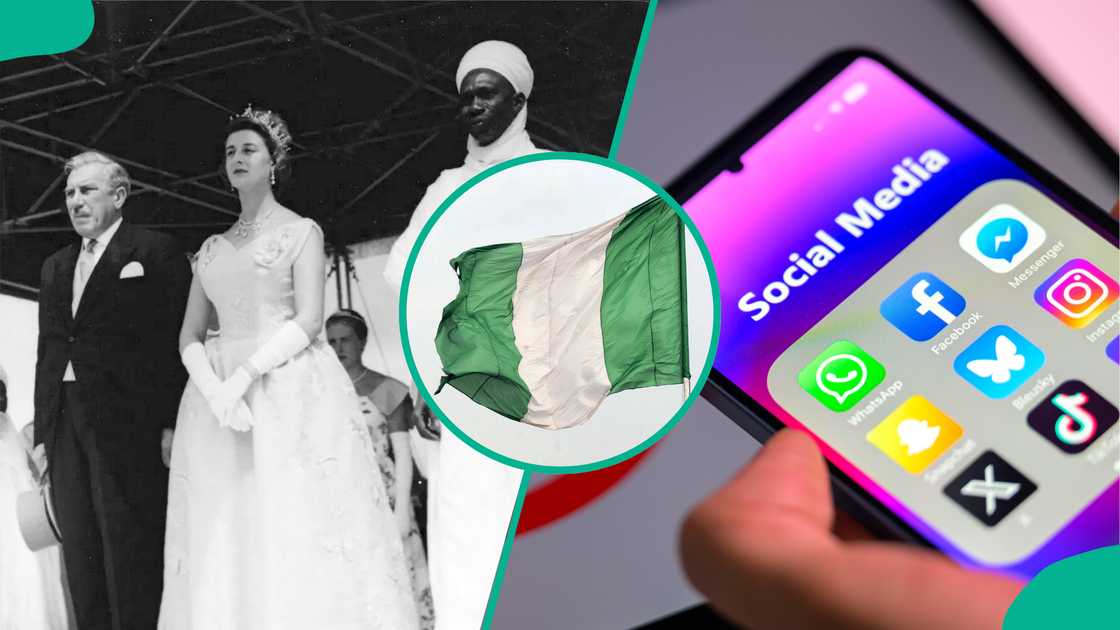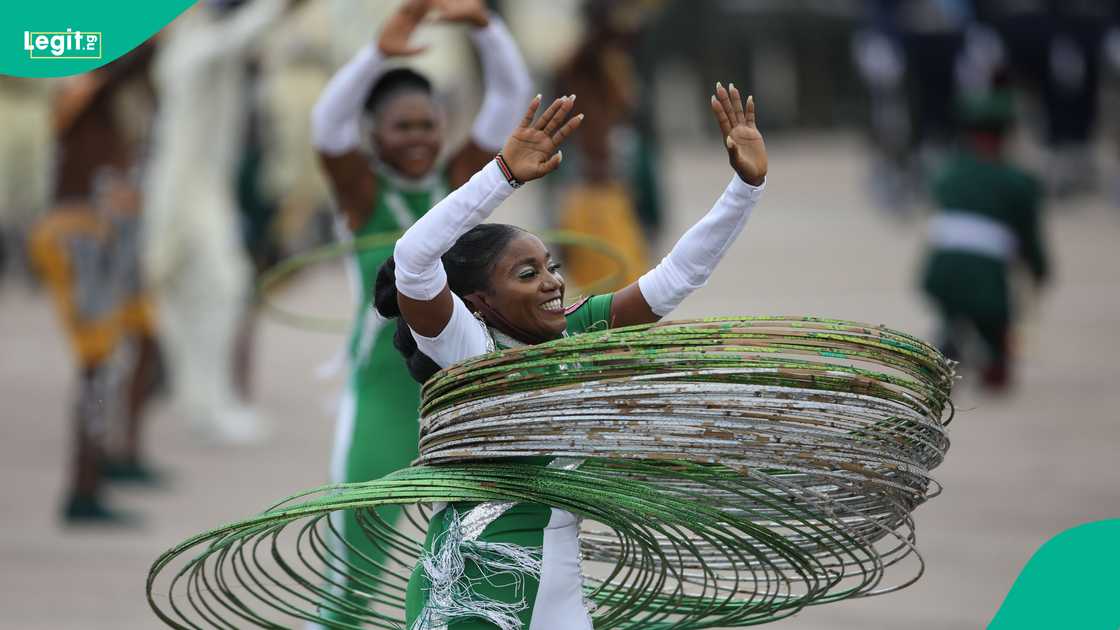On October 1st, 1960, Nigeria formally gained independence from British colonial control, an event now honored as its Independence Day. The day’s events included numerous activities, such as the raising of the green-white-green flag, or the first time at midnight in Tafawa Balewa Square.
In 1960, Nigerians marked their independence through music, processions, and deep national pride, which has since become part of our historical record.
Jump ahead 65 years, and the Fourth of July seems entirely new, particularly with the rise of social media.

Social media has turned October 1st into an international online celebration, brimming with hashtags, memes, TikTok clips, and live broadcasts.
What was previously restricted to radio and verbal communication is now quickly shared with millions of Nigerians both within the country and overseas.
In this article,the peoples.ngcontrasts Nigeria’s Independence Day in 1960 with the social media-fueled festivities of the present.
Independence Day activities
As preparations for Independence Day in 1960 commenced, excitement was conveyed through newspapers, radio broadcasts, and verbal communication.
Nigeria’s initial television station, WNTV Ibadan, offered minimal broadcast reach, yet the majority of individuals turned to radio and newspapers to learn about events and addresses.
In modern times, the spirit of Independence starts online, with hashtags such as #NigeriaAt65 gaining popularity on X (Twitter) and Instagram.
Influencers present themed skits, companies launch Independence Day-themed promotions, and TikTok users share images and videos that highlight Nigerian culture.
Check out this Independence Day-themed post from TikTok creator Jadrolita:
Presidential speeches and parades
In 1960, only individuals who were in Lagos witnessed it in real time; others learned about it through the radio or by reading newspapers.
The heartfelt independence address delivered by Prime Minister Tafawa Balewa was published in its entirety the following day, allowing Nigerians to read it.
Thanks to the rise of social media in modern times, Nigerians can now watch a live stream of the president’s address online, rather than waiting to read about it in newspapers the following day.
Soon, videos spread on X featuring both admiration and disapproval, a significant difference from the slow responses of the 1960s.

The procession, which had previously been considered the pinnacle of Independence Day festivities, was called off in 2025, with the news spreading rapidly among the public through online platforms.
Patriotism vs Criticism
The 1960 Independence Day created a sense of hope, after Nigeria gained its independence from colonial control.
Nigerians expected freedom to bring about wealth and togetherness, and newspapers reflected the pride and loyalty that accompanied the day’s festivities.
In modern times, Nigerians view independence as a means to express their opinions about the nation’s present situation and advocate for improved circumstances.
Memes and online discussions highlight a sense of cultural pride alongside frustration over economic or societal challenges.
Read the comments from former Nigerian vice president, Atiku Abubakar, regarding Nigeria’s 65th Independence Day:
Diaspora involvement
In 1960, Nigerians living overseas had minimal exposure to happenings in their homeland, depending on correspondence from relatives or reports from global broadcasting organizations.
Nowadays, social media bridges this gap as Nigerians in London, New York, or Johannesburg live stream festivals, share their own Independence Day celebrations, and display green-white-green attire.
The diaspora is engaged in the same online dialogue as people within Nigeria, fostering a worldwide Nigerian community.
Social media has transformed October 1st into a more worldwide, engaging, and rapid event, yet it has also provided Nigerians with a stronger voice—one that honors tradition while ensuring leaders are held responsible.
Women who played a role in Nigeria’s Independence
Meanwhile,the peoples.ngpreviously created a list of notable women who played a role in the nation’s liberation, to mark the anniversary of Independence Day.
The piece highlighted three pioneering Nigerian women who showed unwavering determination: Funmilayo Ransome-Kuti, Margaret Ekpo, and Gambo Sawaba.
